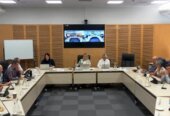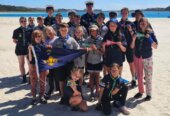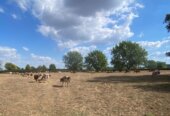
Deija Manuel has learnt to understand stories told in carvings in meeting houses.
At Te Wananga o Aotearoa’s Apakura campus in Te Awamutu a young wahine is venturing into a realm traditionally dominated by males.
Deija Manuel is learning the skills of her tūpuna to tell stories through whakairo – she is a carver.
Deija, who is based in Hamilton, says she was initially apprehensive but has felt supported every step of the way.
“Coming in to this programme I was not confident at all, being a rangatahi Māori and also a wahine. I always knew that it was a male-dominated practice, however, I’ve always been a bit of a radical,” she says.
“Because for me tikanga changes over time and times have changed so we’ve got to adjust to that.”
Before enrolling in the Kawai Raupapa Certificate in Māori and Indigenous Art programme at Te Wānanga o Aotearoa she discussed it with her whānau and her Kaiako – tutor.
“The response of my kaiako was ‘if our tane don’t take it up, who will?’ and that was enough to convince me to continue this path to learn whakairo. I’ve had amazing support from tohunga whakairo artists, one being Kereti Rautangata. He has always said that toi [art] is creativity and individuals use different mediums to express that creativity, so whether you’re expressing that through videography or graphic design or whakairo, it doesn’t matter. I love telling people’s stories.”
It’s that passion for story telling that drew Deija to whakairo, even though it wasn’t something she grew up with.
“I enjoy the way whakairo can uniquely tell stories especially the stories of our tūpuna, stories of our myths, our whakapapa even the stories that we hear through karakia that can be told within rākau [wood].”
Through her learning, Deija is now familiar with different carving patterns and styles among iwi and can identify stories being told though whakairo in wharenui.
“Being able to identify their stories is just so fulfilling for someone who is a rangatahi Māori who wasn’t brought up around their Māoritanga.”
Deija is the 2020 recipient of the $3000 Mike Watson Memorial Scholarship from the AST Scholarship Trust, which awarded seven scholarships to Te Wānanga o Aotearoa tauira this year.
A key part of the scholarships is that recipients give something back to their whānau, hapu or iwi and Deija intends to create a video series encouraging other wahine Māori to consider studying whakairo.
“Being a rangatahi Māori wahine in this practice, I don’t see a lot of us in this field so I would love it if others could come on board so that we can get the message out there that this is a practice for all, no matter what background you come from.”
She says her journey has been made easier by studying at Te Wānanga o Aotearoa.
“When you come here you immediately feel like you belong, there’s an element of whanaungatanga, manākitanga, aroha, all those good things that us tauira need in order to be nurtured on our learning pathway,” she says.
“If you’re dedicated and willing to learn this is definitely a pathway for you.”








